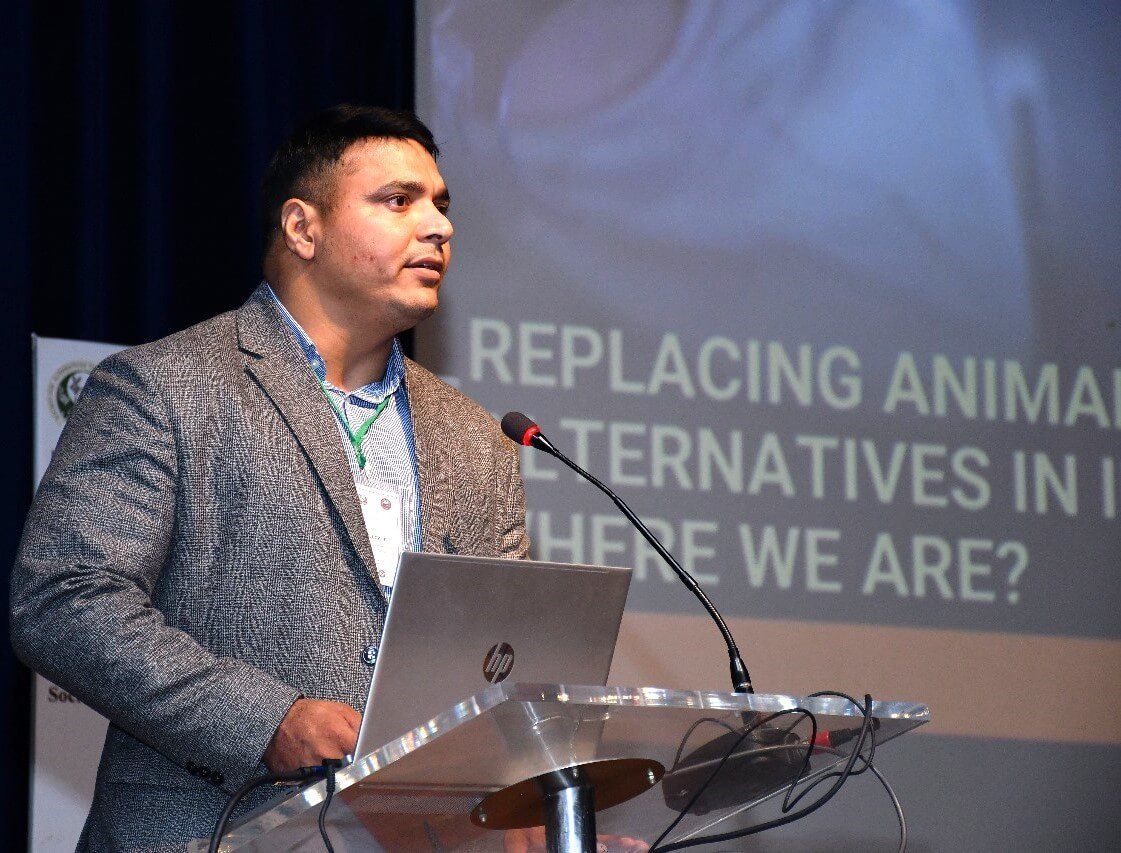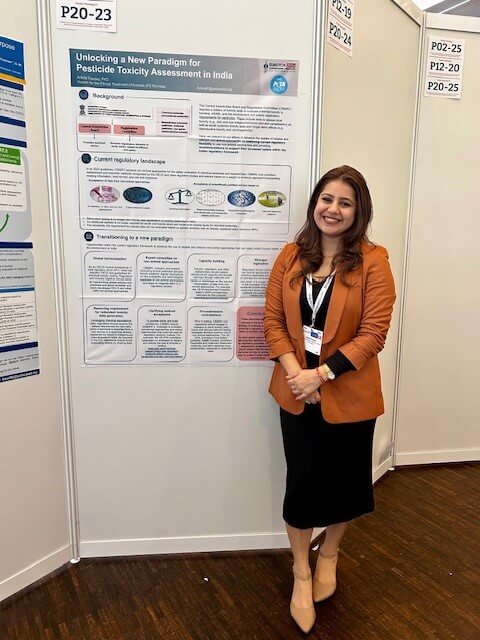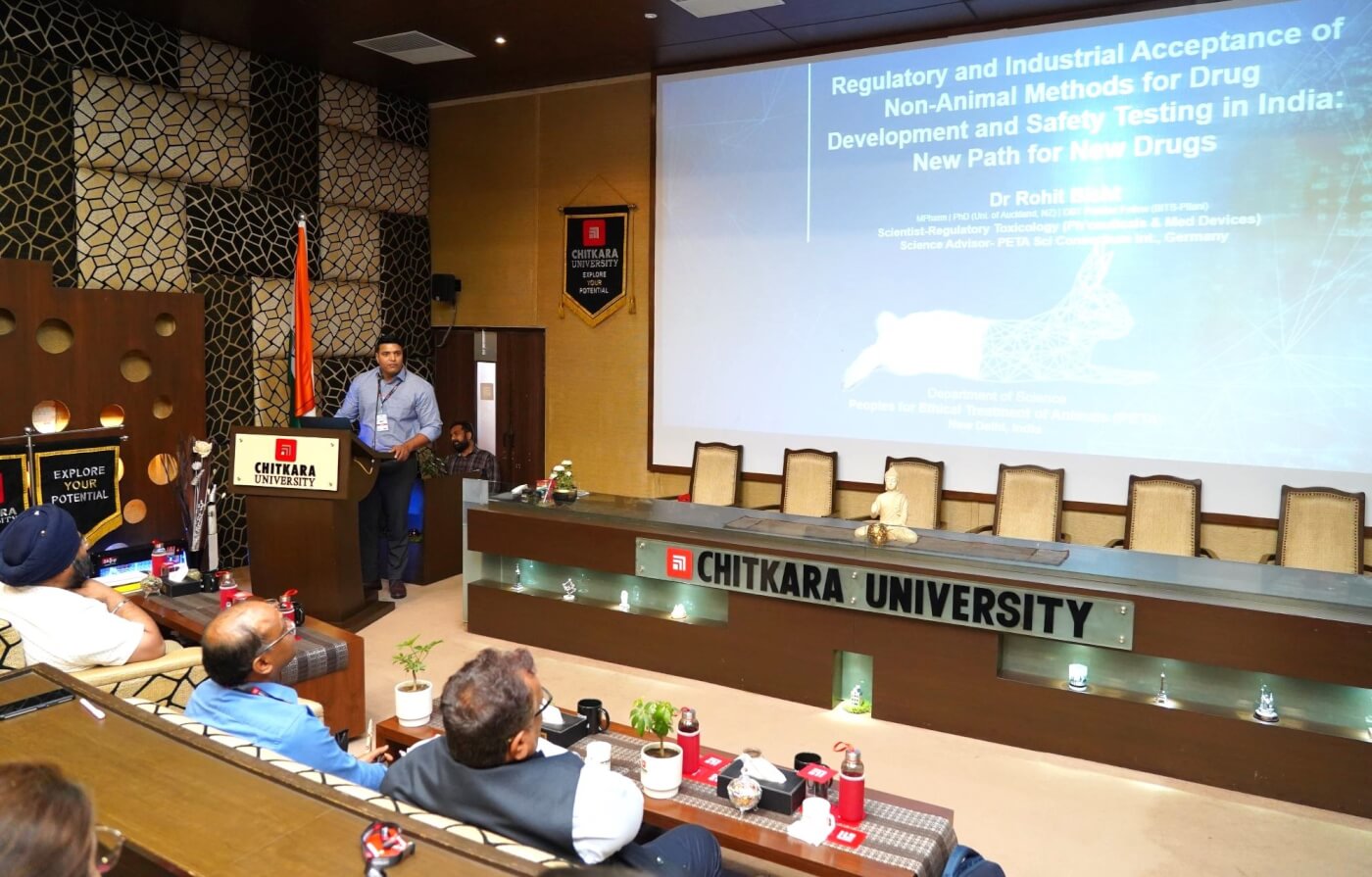PETA India Scientists Champion Animal-Free Toxicity Testing at Major Conferences
PETA India scientists travel across the country – speaking at conferences and forging new relationships in the scientific community – to show that toxicity tests can and should be conducted animal-free.
Regulatory agencies require companies to assess chemicals, drugs, medical devices, and other products for potential toxicity before selling them. Two PETA India scientists are dedicated to ensuring that these toxicity tests are reliable, human-relevant, and conducted without using animals.
Bringing the Latest Advances in Animal-Free Toxicity Testing to Researchers and Regulators
To establish visibility and the credibility of non-animal test methods, PETA India’s regulatory scientists bring the discussion directly to researchers and policymakers. At scientific conferences, meetings, and other events where research in toxicity testing is shared, these scientists ensure non-animal test methods are at the forefront of the conversation.
PETA India scientists are regularly invited to speak at conferences where they share their animal-friendly expertise on human-relevant non-animal methods. For example, they were invited to speak at a conference where they highlighted non-animal testing methods for bio-stimulants, which are agricultural products that help crops grow. The scientist’s presentation provided crucial information to officials who are currently updating regulations and guidelines for bio-stimulants.
Later this year, PETA India scientists will present on non-animal methods for testing pesticides, pyrogens, pharmaceuticals, and medical devices to industry leaders and regulators at the 7th Annual Meeting of the Society for Alternatives to Animal Experiments – India. The conference provides a platform for all scientists working in the field to exchange and update their knowledge of animal-free methods of research and testing.
Saving Animals by Staying Ahead of Regulations
Like bio-stimulants, companies making laboratory-grown meat – commonly called “cultivated meat” in the industry – are developing products in India, and government agencies are just now formulating their opinions on how they can be made, tested, and sold. PETA India scientists are working to ensure these new regulations leave out animals from the start!
At India’s only international conference on cellular agriculture and cultivated meat to date – which attracted key influencers from the food industry – a PETA India scientist spoke about how PETA entities work globally to replace animal-based ingredients commonly used to grow cells in laboratories, such as foetal bovine serum, with animal-free ones. More than 100 people, from regulators to culinary experts, attended the virtual presentation.
Influencing Future Generations of Researchers
At a PETA India–sponsored symposium at Chitkara College of Pharmacy, Chitkara University, PETA India scientists spoke about new paths for accepting non-animal methods for drug development and safety testing in India. The symposium also highlighted efforts to incorporate non-animal research methods into academic curricula to train the next generation of researchers.
Global Outreach and Virtual Engagement
To help keep researchers updated on the latest human-relevant science, PETA India scientists also travel abroad to present at major international conferences, such as the 58th Congress of the European Societies of Toxicology in Denmark, where they presented on animal-free methods of evaluating the toxicity of pesticides and the acceptance of non-animal pyrogen test methods in India. Other times, they make a difference without even leaving their desks! In 2023, PETA India scientists co-organised a series of free online lectures. This series featured national toxicology experts, who provided regulators, industry delegates, and academics with information about using non-animal test methods to fulfil pesticide toxicity testing requirements in India.
Are You a Science-Savvy Animal Advocate, Too?
Over the past decade, reliable, human-relevant non-animal approaches have revolutionised the field of chemical toxicity testing. But there’s still work to do. Please join PETA India in advocating for modern science that benefits humans and other animals alike.
Join Our Call for a Strategy to Replace the Use of Animals in Tests







